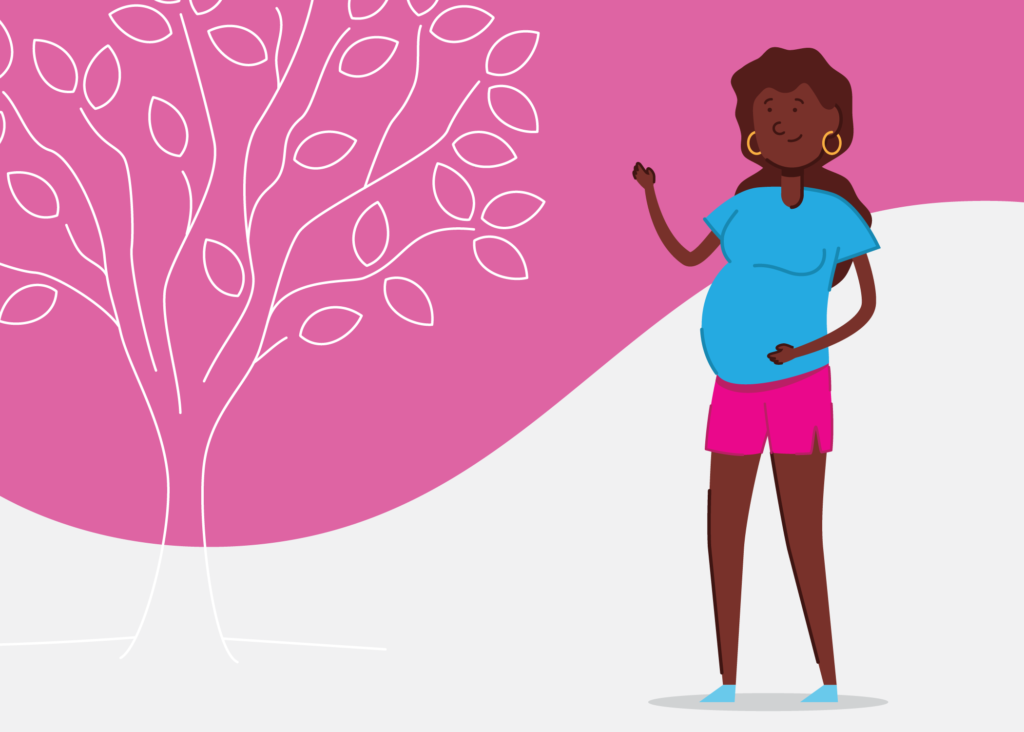Pregnancy can come with many exciting, joyful milestones as an expectant parent experiences changes to their body, but it’s not without potential challenges and complications. While many babies are born perfectly healthy, others are sometimes born with birth defects that can be hazardous, such as Sudden Infant Death Syndrome (SIDS), Strep B and neurological conditions. Fortunately, many birth defects can be prevented through proper prenatal care. So this January, in recognition of National Birth Defects Month, we’ve gathered some helpful information that you can use to protect the health of your newborn prior to giving birth.
Proper Nutrition and Exercise
One of the most helpful things you can do to give your baby a healthy start is by nourishing your body. Maintaining a balanced, nutrient-dense diet and moving your body can help your health and your baby’s. Talk with your doctor about what activity levels are right for your body and lifestyle. In many cases, you can create a healthy exercise routine by simply taking a daily 30-minute walk. Also, make sure to take prenatal vitamins rich in folic acid (400 mcg per day) to promote the healthy growth of your baby.
Minimize Substance Use During Pregnancy
Consuming tobacco products and drinking alcohol are both high-risk activities that can impact your health and also the health of your baby. Babies whose parents consume tobacco or alcohol can end up with defects like Fetal Alcohol Syndrome and neonatal abstinence syndrome (also known neonatal withdrawal). Alcohol and tobacco-related birth defects can result in underdevelopment, physical abnormalities, stillbirth/miscarriage or SIDS. Parents can often set aside activities like these unless addiction or substance abuse disorder are involved, in which case we advise seeking professional help from groups like Central Virginia Addiction & Recovery Resources (CVARR) and Central Virginia Hope Initiative.
Manage Prior Health Conditions
If you have diabetes or other long-term/chronic health conditions, it’s vital to your and your baby’s health that you keep these kinds of conditions well-managed throughout pregnancy. Talk to your doctor about best practices and what medicines or treatments will put your baby at as little risk as possible.
Avoid Becoming Overheated
Babies are sensitive to heat changes in the womb, so avoid any locations of extreme heat (i.e. hot tubs and saunas). Exposing a baby to too much heat while in the womb can lead to conditions such as neural tube defects. If you fall ill, you should talk to your doctor so you can ensure fevers are appropriately treated. Typically, you can safely treat fevers as promptly as possible using acetaminophen (ibuprofen is generally not safe to take during pregnancy unless your doctor recommends it). However, we still recommended calling your doctor to confirm.
Stay Up-To-Date On Vaccinations
Immunity from diseases will also help your baby start life strong. Besides ensuring that you’ve received all your necessary vaccinations, you may want to get a flu shot and a whooping cough/Tdap vaccine during pregnancy. Consult with your doctor about when the best time to get each would be.
Be Aware of Family History
Before you conceive and while you’re pregnant, try to learn about/educate yourself on any genetic health risks that could endanger your baby’s health. While the causes of some birth defects (like SIDS) are not completely known, other early onset illnesses like Strep B and neural disorders may be genetic. If you think you might be at risk of passing on a genetic disorder, or if you’ve already had a baby with a birth defect, make sure your OB/GYN is aware of this. Oftentimes, a simple blood test can help determine potential issues, and from there, you can take steps to prevent birth defects from occurring. If you don’t have access to your family’s health records, let your doctor know so they can steer you in the right direction for what tests should be performed, if any.
Consult With Your Doctor
One of the most important things you can do during pregnancy is to go to your regular doctor’s appointments. Your doctor can monitor your health and the development of your baby and recommend any steps that you need to take to reduce risk and stay well. Your physician can also recommend any medications or vitamins that you should take to enhance your and your baby’s health.
If you’d like to learn more about early childhood development and wellness throughout childhood, we also recommend reading these articles:
- Understanding the Stages of Development for Your Child
- Ways to Encourage Healthy Activity Within the Whole Family
- The Healthiest Breastfeeding Diet
- How to Teach Your Children About Self-Care
At Community Access Network, we’re here to walk through your pregnancy journey with you and keep you as healthy as possible. Having a baby is a major life change, and we want you to enjoy the experience as much as possible. Contact us today!
